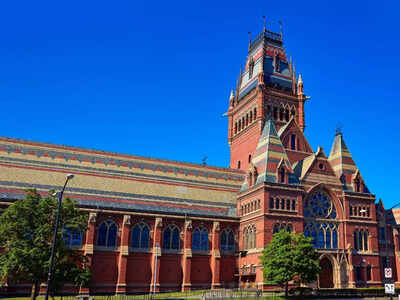ARTICLE AD BOX

Harvard’s Faculty of Arts and Sciences (FAS) is facing rising discontent among professors after announcing drastic reductions to Ph.D. admissions for the next two years.According to The Harvard Crimson, the FAS is dealing with an estimated $365 million structural deficit, prompting cuts of 75% in the Sciences, around 60% in Arts and Humanities, and at least 50% in the Social Sciences.
Summers calls cuts “massive and savage”
Former Harvard President Lawrence H. Summers told The Harvard Crimson that the scale of the cuts was “massive and savage” and “seem[ed] disproportionate to any other cutting.”He expressed hope that “with incremental funding, exception processes, or other means,” the reductions could be softened.
Faculty torn between concern and understanding
Many professors fear that the cuts would damage Harvard’s academic fabric but accepted the move as a necessary step toward fiscal balance.Economics professor Edward L. Glaeser said in a statement to The Crimson, “Of course I am sad about the cut but I am glad that we are moving towards financial sustainability and I understand that the pain needs to be spread around.”
Dean Hoekstra points to rising costs and uncertain funding
FAS Dean Hopi E. Hoekstra told The Crimson that the decision was driven by the rising cost of supporting current graduate students, especially after federal funding was reduced last year. She noted that the Science division alone faced an additional $20 million in expenses.
Hoekstra also cited the impact of the federal endowment tax and broader uncertainty around research funding as contributing factors.
Strain on Undergraduate Teaching and Research
Faculty members warned that the Ph.D. reductions could have ripple effects on undergraduate education and research.Classics professor Richard F. Thomas told The Harvard Crimson that his department would reduce its Ph.D. admissions from five students to two annually, adding that larger undergraduate class sizes may follow.“One of the reasons an undergraduate would come to Harvard,” Thomas said, “would be to have a section of 18 in a GenEd course or a large lecture course, with discussion and a qualified instructor, i.e., a graduate student.”History professor Derek J. Penslar wrote to The Crimson that he understood Harvard’s fiscal pressures but doubted the long-term viability of doctoral programs under such reductions. “The potential damage to our intellectual community and the management of undergraduate courses is vast,” he said.
Questions about administrative growth
Some faculty members say that they believe Harvard should first address what they view as excessive administrative expansion. Since 2004, the university’s full-time administrative workforce has grown by 43%.“I believe that the massive increase in administrative personnel, measured in the thousands at the University, is a better target for austerity,” Summers told The Crimson.Economics professor David I. Laibson, who serves on the FAS Resources Committee, told The Crimson that administrative reductions could still be forthcoming: “Just because something hasn’t been announced yet doesn’t mean it isn’t in conversation.”
Harvard’s move stands apart from peer institutions
The Harvard Crimson reported that Harvard’s Ph.D. cuts are deeper than those at peer universities. Yale University, for instance, is considering a 12% reduction in some graduate programs, while the University of Pennsylvania plans to expand Ph.D. admissions this cycle after temporary cuts last year.
Hope for future reassessment
Harvard Business School professor and former FAS dean William C. Kirby wrote in a statement to The Harvard Crimson that the reductions, though painful, could position the FAS “in a better position to rebound” as it stabilizes financially.
He noted that Harvard’s Ph.D. cohorts have already been shrinking in recent years due to unionization costs and a tightening academic job market.Hoekstra indicated during a faculty meeting that the FAS would revisit its finances next year and may restore admissions depending on the outlook.Still, some professors fear the current cuts have already caused lasting harm.“This is the future,” said Bence P. Ölveczky, professor of Organismic and Evolutionary Biology, in comments to The Crimson. “These students would be our future — it seems to me we shouldn’t give up on them.”

 1 hour ago
5
1 hour ago
5









 English (US) ·
English (US) ·